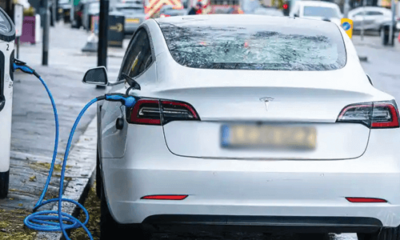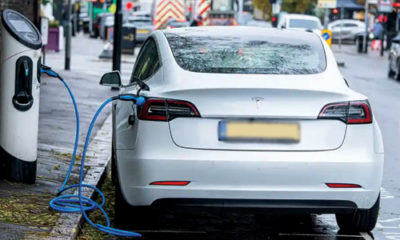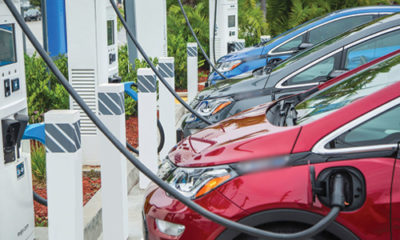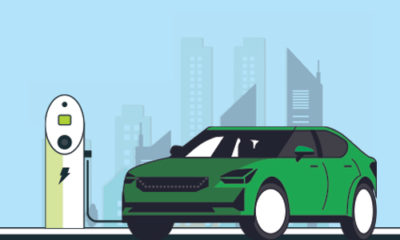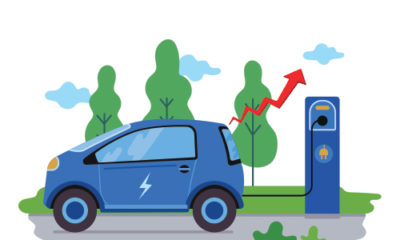News
EV pricing deterrent for mass adoption
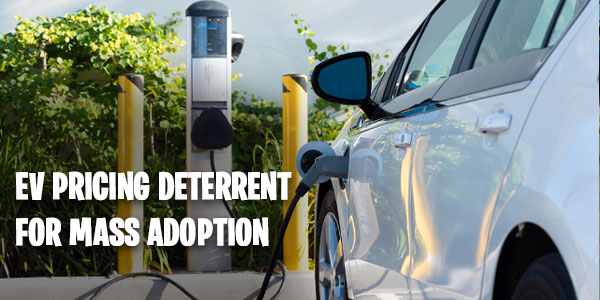

Source: https://www.energybite.co.in/blog-post/ev-pricing-deterrent-for-mass-adoption/
Bolstered by the Government’s push towards green mobility, automobile manufacturers have launched a host of electric vehicles in the country. Still, if the mass adoption of EVs is taking time, one key reason for this is the high price of these vehicles. A concerted effort is essential to make EV pricing within reach of an average Indian, for improving the air quality and cutting the oil import bill.
Despite the subdued sale of electric vehicles in the country, the Government is committed to making India a manufacturing hub of green vehicles. As part of the ‘Made in India’ campaign, it is envisioned that the country becomes one of the largest manufacturers of electric vehicles in the coming decade. Promoting the EV culture, the Government aims at gradually phasing out fuel-based vehicles and replacing these with EVs.
Encouraged by Government’s aggressive thrust in this regard, a large number of automotive players have ventured into the EV segment.
- Many domestic and international automobile manufacturers have already introduced various models in the electric vehicles’ market over the past few years and the race is continuing.
- Having already scaled popularity charts in India over the past two decades, South Korean manufacturer Hyundai Motor has entered the EV segment with the launch of Kona.
- Other companies like Mercedes, Audi, Renault and Volvo have also launched electric variants of their various models in the market, but EVs still remain highly priced in the country.
- A combined effort by the Government and the automobile industry is needed to ensure that the price of EVs is lowered in the country which can lead to their mass adoption.
Many domestic and international automobile manufacturers have already introduced various models in the electric vehicles’ market over the past few years and the race is continuing. They are conscious of the fact that be it cars, buses, rickshaws or two- and three-wheelers, there is a huge potential of electric vehicles in the Indian market.
Leading automobile manufacturer Tata Motors is focused on passenger vehicles and buses in its EV forays. The brand has already launched electric variants of its popular cars Tigor, Altroz, Nexon, Nano and Tiago. The company is committed to expanding further by introducing more electric cars in the market.
Having already scaled popularity charts in India over the past two decades, South Korean manufacturer Hyundai Motor has entered the EV segment with the launch of Kona, which it claims to be the first all-electric SUV in India. Kona has a range of more than 450 km on a single charge. An impressive range, no doubt, but the vehicle is rather expensive for budget-conscious Indian customer. Priced at Rs 23 lakh, Kona is certainly not meant for an average car-buyer.
Morris Garages (MG) India launched ZS, its first EV in the country, in January this year. With a range of more than 340 km on a single charge and features like fast charging, it has seen mild success till now. The problem with MG ZS EV is the same as with Hyundai’s Kona – its ex-showroom price of Rs 20 lakh plus is on the higher side for an average Indian buyer. The company also has plans to come up with its complete range of EVs to suit the Indian market.
Other companies like Mercedes, Audi, Renault and Volvo have also launched electric variants of their various models in the market, but EVs still remain highly priced in the country. While the Centre and various state governments have been providing tax benefits and subsidies, these have not resulted in boosting sales of EVs to significant levels.
Surprisingly enough, market leader Maruti Suzuki India is yet to make its debut in the EV segment. An electric foray towards the end 2020 was hinted at by the carmaker when it conducted nationwide testing of WagonR Electric prototypes two years back, but the EV is yet to see the light of the day. If media reports are to be believed, the e-WagonR will be finally launched next year at an affordable price of Rs 11 lakh.
Ashok Leyland, the market leader in CV segment, has launched multiple electric bus variants like Circuit, HYBUS and electric Euro-6 truck in the country. Reports suggest that the electric buses designed by the company are best suited for Indian conditions.
Being ranked 168th out of 180 in the 2020 Environmental Performance Index (EPI) due to its poor air quality, India is in dire need of adopting a smoke-free driving culture in order to move up the ladder. With a ban on fossil-fuel based vehicles and 100 pc EVs in the country, Denmark tops the EPI list followed by Luxembourg and Switzerland. The adoption of EV culture can help the country not only environmentally, but also economically India imports around $60 billion worth of crude oil annually.
A combined effort by the Government and the automobile industry is needed to ensure that the price of EVs is lowered in the country which can lead to their mass adoption. With American giant Tesla having indicated its plans to enter India next year, one never knows what the future holds for the segment.
The EV game has just begun in India!
-



 News4 weeks ago
News4 weeks agoKW Delhi 6 Mall Onboards New Brands
-



 News4 weeks ago
News4 weeks agoManasum Senior Living Launches IKIGAI GOA, A Senior Living Community in North Goa, in collaboration with Prescon Homes
-



 News4 weeks ago
News4 weeks agoBridging India Divide: Top 5 Tier- 2 Cities to Focus On
-



 News4 weeks ago
News4 weeks agoCommercial Realty Gets Tech Savvy: Fast Construction, Enhanced Convenience
-



 News3 weeks ago
News3 weeks agoGodrej Properties Sells Rs 3k cr+ Homes of Godrej Zenith, Gurugram, within 3 days
-



 News4 weeks ago
News4 weeks agoMultipoint Connection – A Definite Boon
-



 News3 weeks ago
News3 weeks agoRBI’s Status Quo on Key Policy Rates to Help Maintain the Real Estate Growth Momentum, Say Industry Stalwarts
-



 News1 week ago
News1 week agoOlive Announces Dhruv Kalro as Co-Founder









